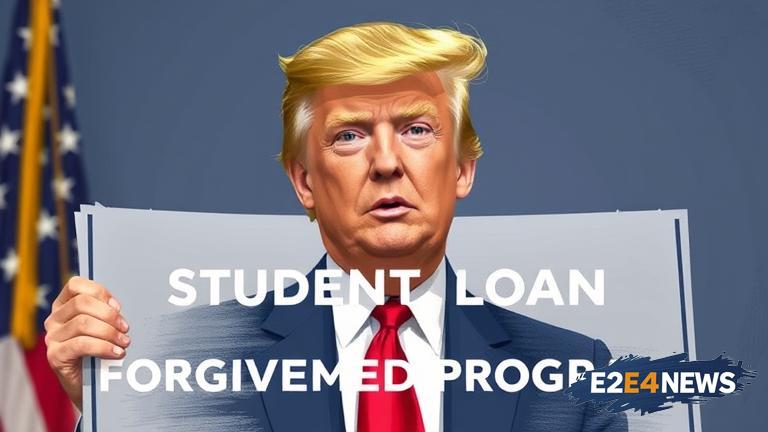The Trump administration has announced the suspension of the student loan forgiveness program under Income-Based Repayment (IBR), a move that has left many students and borrowers in a state of uncertainty. The IBR program was designed to help students manage their debt by capping monthly payments at a percentage of their discretionary income. The program was introduced in 2009 and was meant to provide relief to students who were struggling to repay their loans. However, the Trump administration has cited concerns over the cost of the program and the potential for abuse as reasons for its suspension. The suspension of the program has been met with criticism from student advocacy groups and lawmakers, who argue that it will harm students who are already struggling to make ends meet. The IBR program was a key component of the Obama administration’s efforts to make college more affordable and to reduce the burden of student debt on young people. Under the program, borrowers were eligible to have their loans forgiven after 20 or 25 years of qualifying payments. The program was also designed to help students who were pursuing careers in public service, such as teachers, nurses, and social workers. The suspension of the program has raised concerns about the impact it will have on these students and their ability to pursue careers in public service. Many students have already made plans based on the assumption that they would be eligible for loan forgiveness under the IBR program, and the suspension of the program has left them feeling uncertain and anxious about their financial future. The Trump administration has argued that the program was too expensive and that it was being abused by some borrowers. However, critics of the suspension argue that the program was a vital lifeline for many students and that its suspension will only serve to exacerbate the student debt crisis. The suspension of the IBR program is the latest in a series of moves by the Trump administration to roll back Obama-era policies aimed at making college more affordable. The administration has also proposed changes to the Pell Grant program and has sought to reduce funding for other programs aimed at helping low-income students. The impact of the suspension of the IBR program will be felt by students across the country, and it remains to be seen how the administration will address the concerns of students and borrowers who are affected by the change. In the meantime, students and borrowers are being advised to seek out alternative options for managing their debt, such as income-driven repayment plans and loan consolidation. The suspension of the IBR program has also raised questions about the long-term implications for the student loan industry and the potential impact on the economy. As the student debt crisis continues to grow, it is clear that more needs to be done to address the issue and to provide relief to students and borrowers who are struggling to make ends meet.
